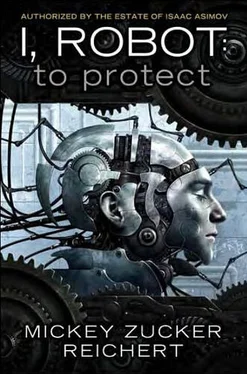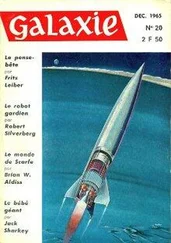Susan had no idea. When she had left the unit, Neurosurgery had not yet made a decision about Starling. Now, Remington had her absolute attention. “What did you find?”
“You tell me.”
Susan knew. “An incompletely repaired A-V fistula.”
Remington laughed. “You were right, and that only ratcheted up your celebrity among the neurosurgery crowd.”
“I have . . . celebrity?”
The server arrived with the soup, placing a bowl and squared-off hard plastic spoon in front of each of them.
“Thank you,” Susan said.
The wonton soup was exactly as Susan remembered it: clear, lightly salted broth with meat dumplings and vegetables, shreds of pork and two large shrimp. Remington picked up his spoon. “A couple of days to recover, and Starling’s on her way home.” He filled his spoon and sipped the hot soup carefully.
“Home?” Susan could scarcely believe it. “After nearly two years on the inpatient unit?” She took a taste of her own soup, reveling in the savory mix of flavors. “Just like that?”
Remington took some more soup. “Just like that. We’re not a long-term unit, Susan. Open ’em up, fix ’em, send ’em home.”
“Yeah.” Susan could not help thinking Starling had lost nearly two years of her young life for nothing. Had someone only noticed the subtle signs of heart failure earlier, Starling could have spent the last year in school. She did not blame Dr. Sudhish Mandar. She suspected he had done nothing wrong, and Remington had simplified the problem. Likely, the A-V fistula had widened farther than it originally appeared, and the venous pooling problem occurred a short distance from the initial spot. “You know, twenty-two different residents and probably ten or eleven attending physicians missed the problem.” It seemed the very definition of malpractice; yet no one appeared worried about that eventuality.
Remington kept eating, swallowing before he spoke. “It happens, Susan. More often than we want to believe. We think we know what’s going on; we put the patient in the appropriate place; then we find out it’s something entirely different. Psychiatrists aren’t wired to look for circulatory defects, just as surgeons don’t worry whether a patient loves or hates his mother before putting him under the knife.”
Susan wondered if Remington had just subtly insulted her profession, then decided to let it go. “But twenty-two months of unnecessary hospitalization? Remy, to a child, that’s a lifetime.”
Remington put down his spoon to lean across the table toward Susan. “If you don’t think to look for something, you generally don’t find it. Everyone believed the psychiatric issues were primary until you heard that gallop rhythm. Whether it was there all those months or only appeared when you did, we’ll never know. According to the chart, no one else heard it until you pointed it out. It’s very subtle. Susan, if I hadn’t known to listen for it, I probably wouldn’t have heard it, either.”
“The cardiologists heard it.”
“It’s their job to hear it. And they also had your notes to go by.” Remington sat back but still did not touch his food again. “Medicine has come a long way in the last hundred years, but it’s still an imperfect science that relies on human judgment.” He smiled. “I think the first sci-fi medical scanners came along in the 1950s. Here we are, eighty-five years later, and we still can’t take a handheld device, run it around someone, and have it diagnose everything that ails him.”
Susan sipped her soup thoughtfully while Remington talked, then said, “We do have devices that can read some things through the skin.”
“Sure we do. Pulse oximeters are some fifty years old, and skin blood glucose monitors came along only a few decades later. Now, we can read a lot of things through skin using lights, magnets, vibrations, and lasers, but it’s still only data, the levels of various chemicals and gases running through the blood. For diagnoses, we rely on human intuition, experience, knowledge, and intelligence. And, in my opinion, we always will. It takes thought to figure out things as amazingly complex as the human body, all the things that can possibly go wrong with it. No machine could ever do that.”
Until a few days ago, Susan would have agreed wholeheartedly.
When she did not, Remington pressed. “Don’t you agree?”
“Well,” Susan finally said, “I don’t think we’ll ever have medical tricorders, lifeless devices that can make diagnoses about body parts they can’t see or touch.” Susan absentmindedly took more soup, chewed, and swallowed.
Remington prodded. “But . . .”
Susan did not disappoint him. “But . . . thinking robots could retain more information than any human. They could digest every medical textbook, every journal, and use that vast store of knowledge to examine patients and come up with appropriate diagnoses. They could use hearing and vision far superior to our own, memory storage areas we could only dream of, and unthinkable speed to do the jobs we take for granted every day.”
Remington returned to his soup. “I don’t see thinking robots happening any time soon. Maybe not ever.”
Susan delivered the coup de grâce. “They already exist.”
“What?”
“My father works with them. I’m telling you, they exist. And, tomorrow, I’ll prove it.”
Remington looked skeptical, but he did not challenge her. “How about tonight?”
Now it was Susan’s turn to sputter out, “What?”
“If such a thing exists, I want to see it as soon as possible.” Remington’s green eyes sparkled. Clearly, the rush stemmed from interest rather than mistrust. “How far do we have to go?”
“Just to the hospital.” Susan had no intention of spoiling the surprise by announcing that Remington had already met a thinking robot. She wanted him to get to know Nate as human before divulging the secret. She only hoped she could get Nate to play along. “I suppose tonight’s fine. Just because I don’t have call again doesn’t mean I can’t stay at the hospital all night, does it?”
Remington laughed. “I get it. How about tomorrow morning? Rounds start at eight o’clock, but I can meet you anytime before that.”
Susan’s rounds did not begin until nine a.m. Most of the psychiatry residents came in at eight o’clock to review patients ahead of time. She wondered how the neurosurgery residents managed to get in some work time before rounds and guessed they probably rounded first and saw patients afterward. “Let’s make it seven o’clock. We’ll meet the same place we did tonight.”
“All right.” Finished with his soup, Remington sat back.
Susan worked to catch up, concentrating on the food rather than on conversation.
Remington allowed her to finish before bringing up another subject. “I really would like to sincerely apologize for the way I treated you when we first met.”
Susan pushed aside the soup bowl and gently dabbed her face with her napkin before returning it to her lap. “You already apologized for that. I was under the assumption this dinner made up for it.”
“Does it?” The tone of Remington’s voice, the expression on his face, made it clear the answer mattered.
Susan did not dither. “Yes, of course. I wouldn’t have agreed if it didn’t. Now, should I apologize to you for, as Kendall Stevens put it, verbally castrating you in response?”
A slight red tinge touched the center of Remington’s cheeks, but he smiled. “Please don’t apologize for that. I liked it.”
The server took the empty soup bowls and spoons, while Susan gave Remington an incredulous look. “You . . . like . . . being castrated?”
“ Verbally castrated,” Remington clarified. “I like that you stood up to me. Not many women would do that, especially not with such speed and accuracy. You’d have made a damn fine surgeon.”
Читать дальше












